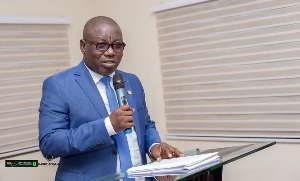The Rastafarian Council of Ghana is considering petitioning the apex court of the land for interpretation on laws that prevent senior high schools from admitting students with dreadlocks.
Administrator for the Council Kofi Asante while speaking on Akoma FM‘s weekend political show WONSOM explained that “the Council has taken exception to what has been happening to our children with dreadlocks who seek to further their education in various senior high schools across the country. Why must we deny a child access to education because of his or her identity?”
This comes after authorities at Osei Kyeretwie Senior High School in Kumasi (OKESS) denied admission to a 19-year-old dreadlocked student with the explanation that the school’s regulation is against the hair.
Similar incident happened at Achimota School in Accra where two students were also denied admission under the pretext that wearing dreadlocks on campus is against the school’s regulations.
This has sparked nationwide debate with different opinions emanating from various angles to the conversation.
But the Rastafarian Council of Ghana says it is seeking a long-lasting solution to the heckling and frustration of students who wear dreadlocks.
Administrator Kofi Asante told the host of the show Aduanaba Kofi Asante Ennin that “we have already petitioned the Ghana Education Service and the Ministry of Education, by Monday or Tuesday if we don’t hear from them we will resort to the Supreme Court for further and better interpretation on whether students must cut their dreadlocks or not”.
The Council based their move to petition the Supreme Court on Article 17 of the 1992 Constitution, which states that “a person shall not be discriminated against on grounds of gender, race, colour, ethnic origin, religion, creed or social or economic status”.
General News of Sunday, 21 March 2021
Source: 3news.com













